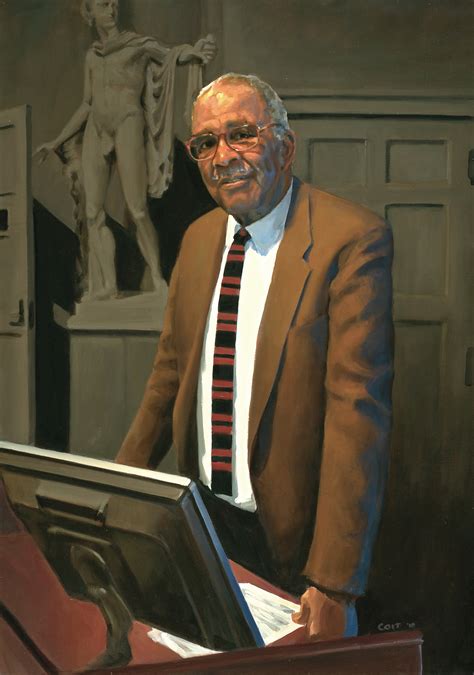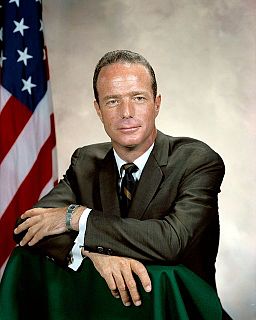A Quote by Alice Walker
It has become a common feeling, I believe, as we have watched our heroes falling over the years, that our own small stone of activism, which might not seem to measure up to the rugged boulders of heroism we have so admired, is a paltry offering toward the building of an edifice of hope. Many who believe this choose to withhold their offerings out of shame. This is the tragedy of the world. For we can do nothing substantial toward changing our course on the planet, a destructive one, without rousing ourselves, individual by individual, and bringing our small, imperfect stones to the pile.
Quote Topics
Activism
Admired
Become
Believe
Boulders
Bringing
Building
Changing
Choose
Common
Course
Destructive
Edifice
Falling
Feeling
Heroes
Heroism
Hope
I Believe
Imperfect
Individual
Many
Measure
Might
Nothing
Offering
Our
Ourselves
Out
Over
Own
Pile
Planet
Rugged
Seem
Shame
Small
Stone
Stones
Substantial
Toward
Tragedy
Up
Watched
Which
Withhold
Without
World
Years
Related Quotes
However small we are, we should always fight for what we believe to be right. And I don’t mean fight with the power of our fists or the power of our swords…I mean the power of our brains and our thoughts and our dreams. And as small and quiet and unimportant as our fighting may look, perhaps we might all work together…and break out of the prisons of our own making. Perhaps we might be able to keep this fierce and beautiful world of ours as free for all of us as it seemed to be on that blue afternoon of my childhood.
I believe we all have lists of shame. Long lists. We live with our constellation of shames quite privately. But they weigh us down. I wish I could abracadabra away shame. This is such a waste of our small time on earth. Our bodies are often the focus of shame. The shame of the body changing. Of the sexual body. Of the aging body. Not being able to do what you once could do. Even just looking at your skin as you age, the texture, the wrinkle, the sag, and somehow feeling ashamed and responsible for its changes.
But if we believe what we profess concerning the worth of the individual, then the idea of individual development within a framework of ethical purpose must become our deepest concern, our national preoccupation, our passion, our obsession. We must think of education as relevant for everyone everywhere - at all ages and in all conditions of life.
Our enthusiasm for digital technology about which we have little understanding and over which we have little control leads us not toward greater agency, but toward less...We have surrendered the unfolding of a new technological age to a small elite who have seized the capability on offer. But while Renaissance kings maintained their monopoly over the printing press by force, today's elite is depending on little more than our own disinterest.
Our measure of rewards and punishments is most partial and incomplete, absurdly inadequate, utterly worldly; and we wish to continue it into the next world. Into that next and awful world we strive to pursue men, and send after them our impotent paltry verdicts of condemnation or acquittal. We set up our paltry little rod to measure heaven immeasurable.
Heroes are necessary in order to enable the citizens to find their own ideals, courage and wisdom in the society. The hero carries our hopes, our aspirations, our ideals, our beliefs. In the deepest sense the hero is created by us; he or she is born collectively as our own myth. This is what makes heroism so important: it reflects our own sense of identity and from this our own heroism is molded.
There is provided an escape from the narrowness and poverty of the individual life, and the possibility of a life which is other and larger than our own, yet which is most truly our own. For, to be ourselves, we must be more than ourselves. What we call love is, in truth . . . the losing of our individual selves to gain a larger self.
Every child in America who enters school at the age of five is mentally ill, because he comes to school with an allegiance toward our elected officials, toward our founding fathers, toward our institutions, toward the preservation of this form of government that we have. Patriotism, nationalism, and sovereignty, all that proves that children are sick because a truly well individual is one who has rejected all of those things, and is truly the international child of the future.
Let us not be blind to our differences-but let us also direct attention to our common interests and to the means by which those differences can be resolved. And if we cannot end our differences, at least we can help make the world safe for diversity. For, in the final analysis, our most common link is that we all inhabit this small planet. We all breathe the same air. We all cherish our children's future. And we are all mortal.
I believe that around us there is only one word on all sides, one immense word which reveals our solitude and extinguishes our radiance: Nothing! I believe that that word does not point to our insignificance or our unhappiness, but on the contrary to our fulfillment and our divinity, since everything is in ourselves.
Nevertheless, our constant efforts to lower our estimate of the present world should not lead us to hate life or to be ungrateful toward God. For this life, though it is full of countless miseries, deserves to be reckoned among the divine blessings which should not be despised. Therefore, if we discover nothing of God's goodness in it, we are already guilty of no small ingratitude toward him.
In the years since man unlocked the power stored up within the atom, the world has made progress, halting, but effective, toward bringing that power under human control. The challenge may be our salvation. As we begin to master the destructive potentialities of modern science, we move toward a new era in which science can fulfill its creative promise and help bring into existence the happiest society the world has ever known.
I would love to see the world's space programs continue toward sending humans to an asteroid or to Mars, with, of course, a full plan in place to bring them back. That excites me. And one of the things that excites me most about space is that we can go up there and put spacecraft in orbit with sensors that will help us measure the health of our planet, which is becoming particularly important. Our planet needs to be observed.
We have lost that which has made us great over the generations, and that is the sense of individual and personal responsibility that we can come up, we can pursue our dreams and our aspirations and we won't be blocked by government regulation, by the inability to get a loan as a small business to make our dreams come true.
This planet is not terra firma. It is a delicate flower and it must be cared for. It's lonely. It's small. It's isolated, and there is no resupply. And we are mistreating it. Clearly, the highest loyalty we should have is not to our own country or our own religion or our hometown or even to ourselves. It should be to, number two, the family of man, and number one, the planet at large. This is our home, and this is all we've got.
The flight from study and awareness is much too common in a world that throws too many confusing pictures to the individual. For the sake of our democracy, based on freedom and individualism, we have to bring ourselves back to study again and again. Otherwise, we can become easy victims of a well-planned verbal attack on our minds and our consciences.






































